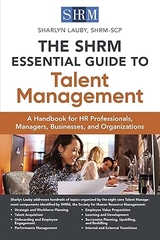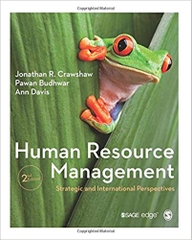-
-
-
Tổng tiền thanh toán:
-
-
Thông tin
-
Tìm sách theo yêu cầu
Peter Cappelli confronts the myth of the skills gap and provides an actionable path forward to put people back to work.
Even in a time of perilously high unemployment, companies contend that they cannot find the employees they need. Pointing to a skills gap, employers argue applicants are simply not qualified; schools aren't preparing students for jobs; the government isn't letting in enough high-skill immigrants; and even when the match is right, prospective employees won’t accept jobs at the wages offered.
In this powerful and fast-reading book, Peter Cappelli, Wharton management professor and director of Wharton’s Center for Human Resources, debunks the arguments and exposes the real reasons good people can’t get hired. Drawing on jobs data, anecdotes from all sides of the employer-employee divide, and interviews with jobs professionals, he explores the paradoxical forces bearing down on the American workplace and lays out solutions that can help us break through what has become a crippling employer-employee stand-off.
Among the questions he confronts: Is there really a skills gap? To what extent is the hiring process being held hostage by automated software that can crunch thousands of applications an hour? What kind of training could best bridge the gap between employer expectations and applicant realities, and who should foot the bill for it? Are schools really at fault?
Named one of HR Magazine’s Top 20 Most Influential Thinkers of 2011, Cappelli not only changes the way we think about hiring but points the way forward to rev America’s job engine again.
- Link: http://www.amazon.com/Why-Good-People-Cant-Jobs/dp/161363014X
Even in a time of perilously high unemployment, companies contend that they cannot find the employees they need. Pointing to a skills gap, employers argue applicants are simply not qualified; schools aren't preparing students for jobs; the government isn't letting in enough high-skill immigrants; and even when the match is right, prospective employees won’t accept jobs at the wages offered.
In this powerful and fast-reading book, Peter Cappelli, Wharton management professor and director of Wharton’s Center for Human Resources, debunks the arguments and exposes the real reasons good people can’t get hired. Drawing on jobs data, anecdotes from all sides of the employer-employee divide, and interviews with jobs professionals, he explores the paradoxical forces bearing down on the American workplace and lays out solutions that can help us break through what has become a crippling employer-employee stand-off.
Among the questions he confronts: Is there really a skills gap? To what extent is the hiring process being held hostage by automated software that can crunch thousands of applications an hour? What kind of training could best bridge the gap between employer expectations and applicant realities, and who should foot the bill for it? Are schools really at fault?
Named one of HR Magazine’s Top 20 Most Influential Thinkers of 2011, Cappelli not only changes the way we think about hiring but points the way forward to rev America’s job engine again.
Product Details
Paperback: 128 pages
- Publisher: Wharton Digital Press (June 19, 2012)
- Language: English
- ISBN-10: 161363014X
- ISBN-13: 978-1613630143
- Product Dimensions: 8.4 x 5.5 x 0.4 inches
- Shipping Weight: 6.4 ounces (View shipping rates and policies)
- Average Customer Review: 4.3 out of 5 stars See all reviews (52 customer reviews)
- Amazon Best Sellers Rank: #229,467 in Books (See Top 100 in Books)
Editorial Reviews
Review
“Provocative.” —Rick Wartzman, Forbes
“Explodes the 'skills gap' explanation favored by many corporate leaders and human resources consultants."
—Jena McGregor, The Washington Post
“Peter Cappelli’s new book addresses one of today’s major conundrums: why do so many jobs in America remain unfilled in the face of persistently high unemployment? With so many concerned observers looking to the government to solve the jobs crisis, Cappelli’s book is a refreshing and highly readable treatise on the roles and responsibilities of the private sector in matching job seekers to jobs. A must-read for those interested in how to get US employment back on track.”
—Jennifer Blanke, Lead Economist, World Economic Forum
“Peter Cappelli has produced a valuable and very readable examination of the important, but often misunderstood, skills gap problem. He punctures many common myths and outlines a sensible way to better match the demand for, and supply of, skills.”
—Ray Marshall, Rapoport Centennial Chair of Economics and Public Affairs, University of Texas at Austin, and Former Secretary of Labor
“It is high time to dismiss a silo approach to education and workforce and focus on the overall objective of these efforts, which is ensuring that every American has access to a training mechanism that will allow them to maximize their human potential. Such an approach requires greater engagement of corporate human resource departments, training providers and government leaders. Bravo to Dr. Cappelli for highlighting the importance of taking a supply chain approach to worker training and public-private partnerships.”
—Cordell Carter, Former Vice President, Public Policy, Business Roundtable
“Explodes the 'skills gap' explanation favored by many corporate leaders and human resources consultants."
—Jena McGregor, The Washington Post
“Peter Cappelli’s new book addresses one of today’s major conundrums: why do so many jobs in America remain unfilled in the face of persistently high unemployment? With so many concerned observers looking to the government to solve the jobs crisis, Cappelli’s book is a refreshing and highly readable treatise on the roles and responsibilities of the private sector in matching job seekers to jobs. A must-read for those interested in how to get US employment back on track.”
—Jennifer Blanke, Lead Economist, World Economic Forum
“Peter Cappelli has produced a valuable and very readable examination of the important, but often misunderstood, skills gap problem. He punctures many common myths and outlines a sensible way to better match the demand for, and supply of, skills.”
—Ray Marshall, Rapoport Centennial Chair of Economics and Public Affairs, University of Texas at Austin, and Former Secretary of Labor
“It is high time to dismiss a silo approach to education and workforce and focus on the overall objective of these efforts, which is ensuring that every American has access to a training mechanism that will allow them to maximize their human potential. Such an approach requires greater engagement of corporate human resource departments, training providers and government leaders. Bravo to Dr. Cappelli for highlighting the importance of taking a supply chain approach to worker training and public-private partnerships.”
—Cordell Carter, Former Vice President, Public Policy, Business Roundtable
About the Author
Peter Cappelli is the George W. Taylor Professor of Management at The Wharton School and Director of Wharton’s Center for Human Resources. His recent research examines changes in employment relations in the U.S. and their implications. Cappelli writes a monthly column on workforce issues for Human Resource Executive Online and has contributed to the Wall Street Journal, the Washington Post, Bloomberg Businessweek, and other news venues. His books include Managing the Older Worker: How to Prepare for the New Organizational Order (with Bill Novelli), The India Way: How India’s Business Leaders are Revolutionizing Management (with Harbir Singh, Jitendra Singh, and Michael Useem), Talent on Demand: Managing Talent in the Age of Uncertainty, and The New Deal at Work: Managing the Market-Driven Workforce.
Most Helpful Customer Reviews
88 of 88 people found the following review helpfulBy Steve T on June 6, 2012
Format: Kindle Edition
7 Comments Was this review helpful to you? YesNo"Why Good People Can't Get Jobs" illustrates a simple truth that is obvious to anyone who looks at help-wanted ads: employers are looking for incredibly specific skills. They don't want someone who CAN do the job; they want someone who has already done the exact job. As the author points out, this creates a catch-22 situation for anyone who has skills, but not the precise ones for a particular job.
The author relates how CEOs constantly blame the educational system, but clearly it is ridiculous to ask schools to prepare students to fit immediately into exact jobs. Some level of on-the-job training has always been required. This is true for even the the highest levels of education. Imagine, for example, if we expected doctors to be able to jump directly into a job from medical school with no additional training.
Yet, today, there is such a surplus of prospective workers that employers have the luxury of waiting for the ideal candidate (meaning someone who already has that job) to show up. The author also points out how technology, such as automated systems that match resumes, is driving this by rejecting anyone who is not a precise fit.
Technology is also having a more general impact. As the author notes, many companies simply decide to wait and leave positions unfilled, letting other workers carry the load. They can do this partly because constantly advancing technology is automating more jobs and tasks and allowing fewer workers to do more.
This is really the elephant in the room that no one talks about. Technology is getting better and better, and things are likely to become even more difficult for prospective workers. Just check the current news during any week, and you're sure to find articles about new software, robotics and artificial intelligence that is having an impact on the job market.
The bottom line is that in a slack labor market, employers have no incentive to invest in training. They can wait for the perfect candidate or rely more on technology. Many people will be left behind and it will NOT be because they are unskilled. It will be because they are unlucky and do not have the exact skills at exactly the right time.
The author relates how CEOs constantly blame the educational system, but clearly it is ridiculous to ask schools to prepare students to fit immediately into exact jobs. Some level of on-the-job training has always been required. This is true for even the the highest levels of education. Imagine, for example, if we expected doctors to be able to jump directly into a job from medical school with no additional training.
Yet, today, there is such a surplus of prospective workers that employers have the luxury of waiting for the ideal candidate (meaning someone who already has that job) to show up. The author also points out how technology, such as automated systems that match resumes, is driving this by rejecting anyone who is not a precise fit.
Technology is also having a more general impact. As the author notes, many companies simply decide to wait and leave positions unfilled, letting other workers carry the load. They can do this partly because constantly advancing technology is automating more jobs and tasks and allowing fewer workers to do more.
This is really the elephant in the room that no one talks about. Technology is getting better and better, and things are likely to become even more difficult for prospective workers. Just check the current news during any week, and you're sure to find articles about new software, robotics and artificial intelligence that is having an impact on the job market.
The bottom line is that in a slack labor market, employers have no incentive to invest in training. They can wait for the perfect candidate or rely more on technology. Many people will be left behind and it will NOT be because they are unskilled. It will be because they are unlucky and do not have the exact skills at exactly the right time.
44 of 46 people found the following review helpfulBy T. Sales on June 5, 2012
Format: Paperback Verified Purchase
Who cares about unemployment? Books like "The Great Reset" by Richard Florida predict that jobs will be redistributed based on the skills of people around geographical centers of excellence. In his new book "Coming Apart" Charles Murray tells us that people struggle to find jobs because they have abandoned traditional American values. We hear every day in the media that our next President will be the one who convinces us that he can resolve the jobs crisis. One wonders whether there's a conspiracy going on with jobs when we hear that companies are sitting on $2 trillion but are reluctant to spend because of low demand and because they can't find candidates with the skills they need. We hear how job hunters--some with advanced degrees and years of experience--suddenly don't have what it takes to work in this economy. And let's face it ... most of us worry personally about working on our own terms, if not for ourselves then certainly for our kids. So it seems that people not only care about finding jobs but it's an emotional issue that gets more emotional every day.
In "Why Good People Can't Get Jobs" Peter Cappelli lays out how we've gotten here, not emotionally and certainly not as an issue of rich vs. poor, liberal vs. conservative, or Democrat vs. Republican as recent books about our current problems tend to do. Cappelli--a management professor at The Wharton School and director of Wharton's Center for Human Resources--is in a unique position to see what's different today than what happened when emerging from recessions in 1991 and 2001. This book is a very fast read because it is to-the-point and clearly presented.
Adapting to the global economy and having a glut of labor from the baby boom generation, Cappelli says, has the changed the expectations of employers. A confluence of events has resulted in a new system that has changed the hiring process and the way new hires are trained to do their jobs:
* HR departments--once existing largely to confront labor issues and unions--gradually downsized as those issues faded away.
* With fewer HR people, employers needed more convenient ways to recruit and handle job descriptions and applications which the Internet has provided.
* Application processing software enabled automated reviews of applications, targeting exact requirements and spitting out applications that were not a perfect match.
* As people were let go and jobs were combined, job descriptions started to look for people who had never existed before. And hiring managers added even more requirements to minimize the risk of failure.
* It has become easier and less risky to leave some vacancies open than to hire people who almost certainly lack the skills for these new super jobs.
This is technology enabling new behaviors that have met the needs of employers but at the detriment not just of job applicants and new employees but mostly to the employers themselves. Cappelli describes how many companies are very aware of how much their jobs are costing them but not so sure about how their profit and cost centers--much less their individual jobs--actually contribute to their revenues. So when they lose people, they can convince themselves that they don't really need to replace those people and their tasks get redistributed to other employees or just don't get done at all. The end result is that the remaining employees get burned out (and quit themselves), new projects get delayed, expansion activities get postponed, etc.
My favorite quote in the book was "There is the simple fact that every generation believes it has experienced profound technological changes, perhaps because it was not around to witness the truly unprecedented changes of previous generations. Imagine witnessing the rise of widely available electricity, telephones, and automobiles--all in the same decade. We are constantly reminded that we live during the computer-driven Information Revolution, but there is no evidence that the current period represents one of unusual changes in technology. Likewise, no data or statistics convincingly support the claim that our job seekers are remarkably unprepared for the future, whatever it may be." It's interesting that the decade Cappelli is describing here (the 1920's) preceded the Depression. Is it a coincidence that our Information Revolution led us into what some now call the Great Recession? Did our innovations and belief in technology force us to get ahead of ourselves in a similar fashion?
In the last chapter Cappelli focuses on different training scenarios that could balance the risk between employers and employees in a job environment where there is bound to be more jockeying for position as companies and employees alike start to plan their careers and take or turn down jobs based on long-term future opportunities. "Why Good People Can't Get Jobs" shows that the path to more acceptable levels of employment is a little more complicated than the emotional arguments we're hearing in the media. Figuring out ways to involve employers and employees; to set up job training programs in-house, in community colleges and tech programs; to engage state and local governments; and to understand how job vacancies are really holding back our companies will lead to new programs that will eventually start to turn things around. Read this book to see the jobs issue in a much more realistic light.
In "Why Good People Can't Get Jobs" Peter Cappelli lays out how we've gotten here, not emotionally and certainly not as an issue of rich vs. poor, liberal vs. conservative, or Democrat vs. Republican as recent books about our current problems tend to do. Cappelli--a management professor at The Wharton School and director of Wharton's Center for Human Resources--is in a unique position to see what's different today than what happened when emerging from recessions in 1991 and 2001. This book is a very fast read because it is to-the-point and clearly presented.
Adapting to the global economy and having a glut of labor from the baby boom generation, Cappelli says, has the changed the expectations of employers. A confluence of events has resulted in a new system that has changed the hiring process and the way new hires are trained to do their jobs:
* HR departments--once existing largely to confront labor issues and unions--gradually downsized as those issues faded away.
* With fewer HR people, employers needed more convenient ways to recruit and handle job descriptions and applications which the Internet has provided.
* Application processing software enabled automated reviews of applications, targeting exact requirements and spitting out applications that were not a perfect match.
* As people were let go and jobs were combined, job descriptions started to look for people who had never existed before. And hiring managers added even more requirements to minimize the risk of failure.
* It has become easier and less risky to leave some vacancies open than to hire people who almost certainly lack the skills for these new super jobs.
This is technology enabling new behaviors that have met the needs of employers but at the detriment not just of job applicants and new employees but mostly to the employers themselves. Cappelli describes how many companies are very aware of how much their jobs are costing them but not so sure about how their profit and cost centers--much less their individual jobs--actually contribute to their revenues. So when they lose people, they can convince themselves that they don't really need to replace those people and their tasks get redistributed to other employees or just don't get done at all. The end result is that the remaining employees get burned out (and quit themselves), new projects get delayed, expansion activities get postponed, etc.
My favorite quote in the book was "There is the simple fact that every generation believes it has experienced profound technological changes, perhaps because it was not around to witness the truly unprecedented changes of previous generations. Imagine witnessing the rise of widely available electricity, telephones, and automobiles--all in the same decade. We are constantly reminded that we live during the computer-driven Information Revolution, but there is no evidence that the current period represents one of unusual changes in technology. Likewise, no data or statistics convincingly support the claim that our job seekers are remarkably unprepared for the future, whatever it may be." It's interesting that the decade Cappelli is describing here (the 1920's) preceded the Depression. Is it a coincidence that our Information Revolution led us into what some now call the Great Recession? Did our innovations and belief in technology force us to get ahead of ourselves in a similar fashion?
In the last chapter Cappelli focuses on different training scenarios that could balance the risk between employers and employees in a job environment where there is bound to be more jockeying for position as companies and employees alike start to plan their careers and take or turn down jobs based on long-term future opportunities. "Why Good People Can't Get Jobs" shows that the path to more acceptable levels of employment is a little more complicated than the emotional arguments we're hearing in the media. Figuring out ways to involve employers and employees; to set up job training programs in-house, in community colleges and tech programs; to engage state and local governments; and to understand how job vacancies are really holding back our companies will lead to new programs that will eventually start to turn things around. Read this book to see the jobs issue in a much more realistic light.
XEM CHI TIẾT TẠI AMAZON.COM
- Thông tin chi tiết
- Mục lục
- Đánh giá & bình luận của người mua
- Những cuốn sách cùng chủ đề hoặc có liên quan
Tại web chỉ có một phần nhỏ các đầu sách đang có nên nếu cần tìm sách gì các bạn có thể liên hệ trực tiếp với Thư viện qua Mail, Zalo, Fanpage nhé
Đăng ký nhận tin qua email
Hãy đăng ký ngay hôm nay để nhận được những tin tức cập nhật mới nhất về sản phẩm và các chương trình giảm giá, khuyến mại của chúng tôi.












